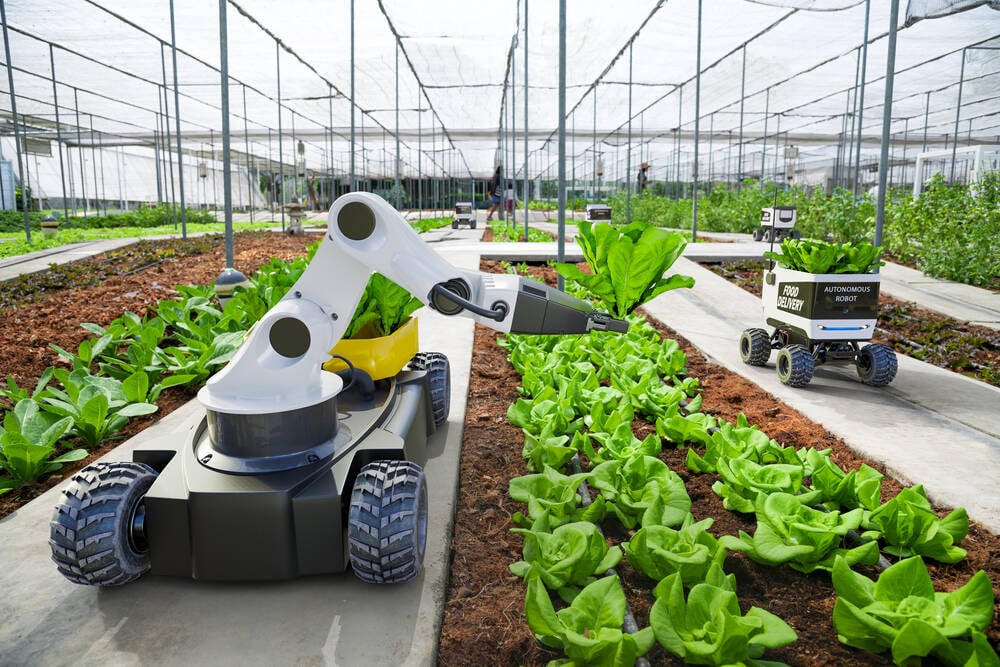Scaling agriculture technology takes coordination

Canada is an agriculture exporting superpower, but it should also be a leader in agriculture technology, says a new report.
Read Also

Agriculture leaders honoured with King Charles III Coronation medal
15 Ontarians received the King Charles III Coronation Medal in 2024.
Created by the Arrell Food Institute at the University of Guelph and the Food and Agriculture Institute at the University of the Fraser Valley, the report recommends four strategies to drive increased success in agriculture technology.
Why it matters: Farms struggle with growing productivity amid labour shortages and a healthy ag tech innovation system can help solve some challenges.
Canada produces significant intellectual property and primary research in agriculture, but has historically struggled to get those ideas to market. There’s also a gap in venture funding along the agriculture technology development process, where few funders exist.
The approach needs the industry, government and academia to work together, says Erin Doherty, strategic initiatives lead at the Arrell Food Institute.
Entrepreneurs are working to scale products, keep the lights on and make payroll, so adding complexity to programs and funding adds challenges.
“We do have a lot of services and support,” says Doherty. “It is so complicated to maneuver it. Every organization has a different form to fill out, a different timeline and often those timelines don’t align for funding.”
Greater coordination and a one-stop shop for access to programs and funding can make sense.
“What we want to see is just a front door. You arrive here and then it’s someone’s responsibility to help connect all those different layers of funding.”
Entrepreneurs in agriculture bring skills, ideas and energy to their new businesses, but in Canada scaling those businesses can be challenging, especially with longer testing intervals in agriculture.
Doherty says a tech entrepreneur not in agriculture can go to Toronto and find 100 people to test their product with little challenge. In agriculture, finding a farm, building a relationship and then testing within a limited time is challenging.
“Our entrepreneurs experience a lot of difficulty facilitating those on-farm connections,” she says. “We are such a fragmented community in agri-food, it is hard to get three testers.”
Doherty heard that sentiment during the study from entrepreneurs, but also heard from producers that they have an appetite for technology innovation.
“So there’s a bit of a gap there somewhere. I was hearing a lot from producers, ‘tell us the ROI, we’re here, we’re ready for it.’”
Extension services could help, although governments have reduced agriculture extension services over the past 20 years. Doherty says there’s a people connection in the adoption of ag tech and without extension services, some of that is lost.
The report’s four strategies to help ag tech entrepreneurs include helping ag tech companies scale, training the next generation, reducing the risk of investing and mobilizing applied research.
Helping ag tech companies scale
- The report recommends partnerships to train entrepreneurs in areas that integrate technical skills with strategic thinking on commercialization and intellectual property.
- An organization that provides a one-stop shop for entrepreneurs in ag tech can help them get to success quicker.
- There’s a role for more home-grown value-added food processing in Canada. Doherty says food processing facilities give an entrepreneur with a new technology more chances to test it locally, reducing the time to market.
- A concern for ag tech entrepreneurs is the unwillingness of farmers to try products. Early adopters could be incentivized by industry organizations and governments to be involved early in the development process.
- Standards that make technology inter-operable and shareable should be encouraged.
Training the next generation
- Entrepreneurs need many skills, so more interdisciplinary programs that integrate science, agriculture, business and funding sources should be created.
- Micro-credential programs would allow for flexible learning of skills to address gaps on a team.
- Raise awareness about the agriculture and food system for employment, especially in underrepresented groups.
Reducing investment risk
- The Netherlands has an innovation working group called its Top Team approach. The report suggests something similar for Canada, established by governments and composed of academic, industry, community and government representatives.
- Venture capital investment lags in Canadian ag tech, so governments should explore ways to drive patient capital and public-private partnerships to support later-stage companies to scale. Early-stage companies that need funds could work with producer organizations, extension and specialized incubators to create support from investors. Doherty says that large institutional investors are still trying to figure out agriculture and the risk involved, especially when they have expensive requirements, like measuring carbon impact.
- Reducing regulations that are barriers for new innovations would help, as long as Canada’s rigorous regulatory system is upheld.
Mobilizing applied research
- Research incentives could be more innovative with assessment of research impact, challenge-based prizes and demonstration projects funded by governments.
- Canada has seen a nation-wide decline in agriculture and rural advisory services, but more investment would spread information about ag tech to the farm level.
- Industry and academia should collaborate more on knowledge sharing to develop applied solutions that can increase business funding in research and development.
How was the study completed?
In late 2023 and 2024, the Arrell Food Institute at the University of Guelph and the Agriculture Institute at the University of the Fraser Valley consulted 100 industry, academic, government and community experts across Canada.
Source: Farmtario.com

